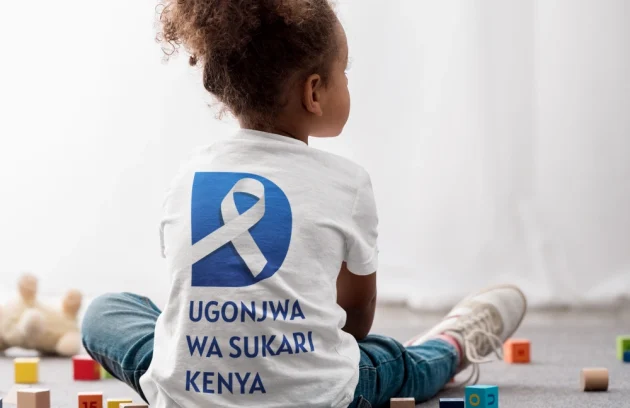- September 26, 2024
- Diabetes Kenya
- Comment: 0
- Children and diabetes
Type 1 Diabetes in Children: How Your Child May React to Their Diagnosis
For children and teens in Kenya diagnosed with Type 1 diabetes, the initial moments following their diagnosis can be incredibly overwhelming. Often, it may feel like a confusing blur, filled with memories of feeling unwell, suddenly being rushed to the hospital, and waking up in a medical setting surrounded by doctors, nurses, and concerned family members. The entire experience can seem like a bad dream, one that they wish to forget.
However, Type 1 diabetes is not like common childhood illnesses that disappear after some time. The reality is that diabetes is a lifelong condition, and once children begin to understand this, they often experience a mixture of fear, sadness, and frustration. They might yearn to return to a time before their diagnosis.
Coping with a Diabetes Diagnosis
In Kenya, as in other parts of the world, every child and family responds differently to a Type 1 diabetes diagnosis. Children often look to their parents to understand how to handle the situation, and their reactions may reflect the way their family copes with challenges.
After the shock of diagnosis, it’s important to give your child time to process their emotions. Expecting them to quickly adjust is not helpful. The emotional impact of this life-changing event needs to be acknowledged. Encourage your child to talk about how they feel. They may be scared, upset, or even blame themselves. These feelings need to be expressed rather than ignored. Burying emotions can cause them to resurface later in life, perhaps during their teenage years or even adulthood.
Some children may prefer to downplay their diagnosis or avoid talking about it altogether. They may cope by pretending everything is fine. It’s important to recognize that even if a child appears to be handling it well, they might be hiding deeper emotions.
Supporting Children with Diabetes
After a diagnosis, children go through a process of grieving. They are grieving the loss of their previous life, one without the challenges that diabetes brings. This period of adjustment takes time, and each child will move through it at their own pace. The key is to offer emotional and physical support and allow them to grieve in their own way.
One of the best ways to support a child during this time is to encourage open communication. Let your child know that they can talk to you or someone they trust about their feelings. Living with Type 1 diabetes can feel isolating, so having a supportive network of family and friends is crucial.
Older Children and Teenagers
Older children and teens in Kenya may find it harder to talk about their diabetes. Sometimes, they may prefer speaking with someone outside the family, such as a grandparent, mentor, or trusted friend. It can also be helpful for teens to keep a journal where they can express their thoughts, frustrations, and achievements related to managing diabetes.

Young Children
For younger children, comfort and reassurance are key. They need to feel safe, loved, and supported. If the diagnosis happens while they are very young, emotional or behavioral challenges may arise as they grow older, particularly when they start school and notice that their lives are different from other children.

Tips for Teens and Older Children Managing Diabetes

Respect diabetes
It’s a part of your life, so acknowledge the challenges and give yourself credit for handling them.

Recognize the difficulties
Understand that managing diabetes is hard work, but believe in your strength to manage it.

Build a healthy relationship with diabetes
Rather than viewing it as an enemy, think of it as a difficult relative. There will be good days and bad days, but it’s something you can live with.

Be kind to yourself
Living with diabetes is challenging. It’s okay to have moments when you don’t cope as well. You’re human, and that’s perfectly okay.
Encouraging children with Type 1 diabetes in Kenya to express their feelings and giving them the support they need will help them adjust to life with the condition. Through understanding, patience, and compassion, families can work together to manage diabetes effectively and ensure their children live healthy, fulfilling lives.

Their Reaction
CHILDREN AND DIABETES Type 1 Diabetes in Children: How Your Child May React to Their Diagnosis For children…



